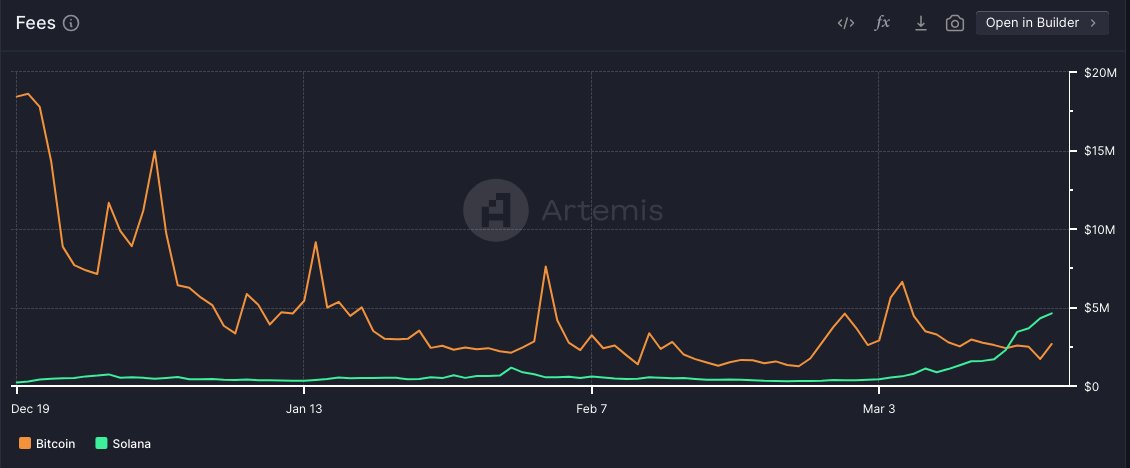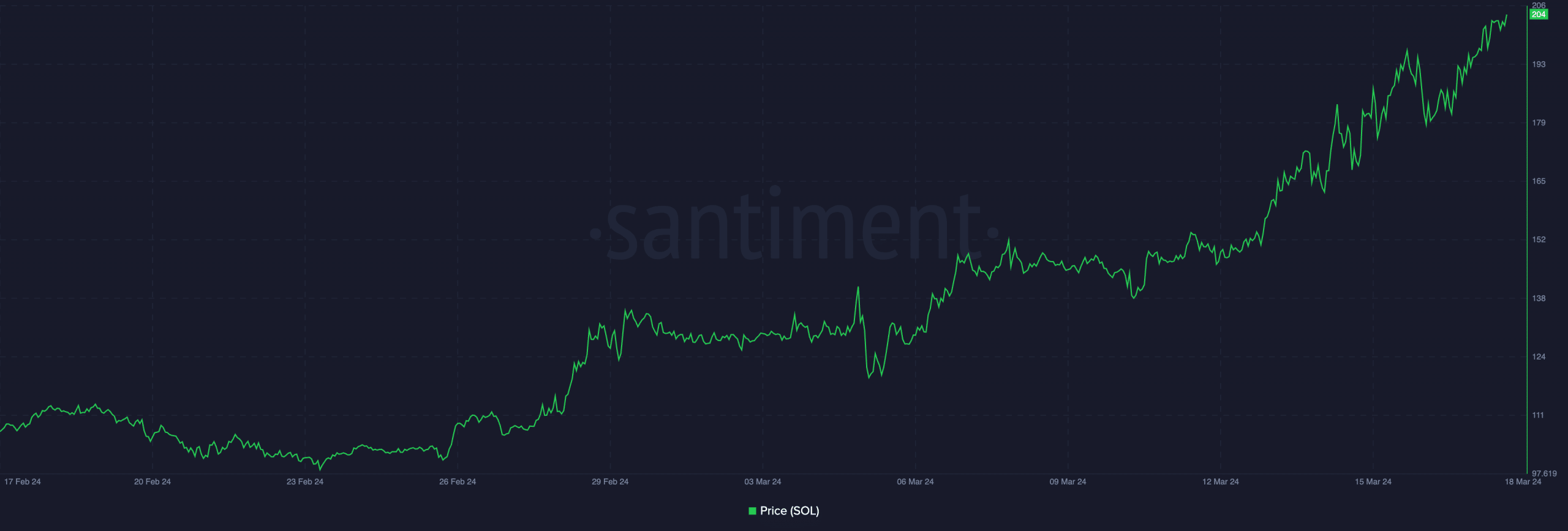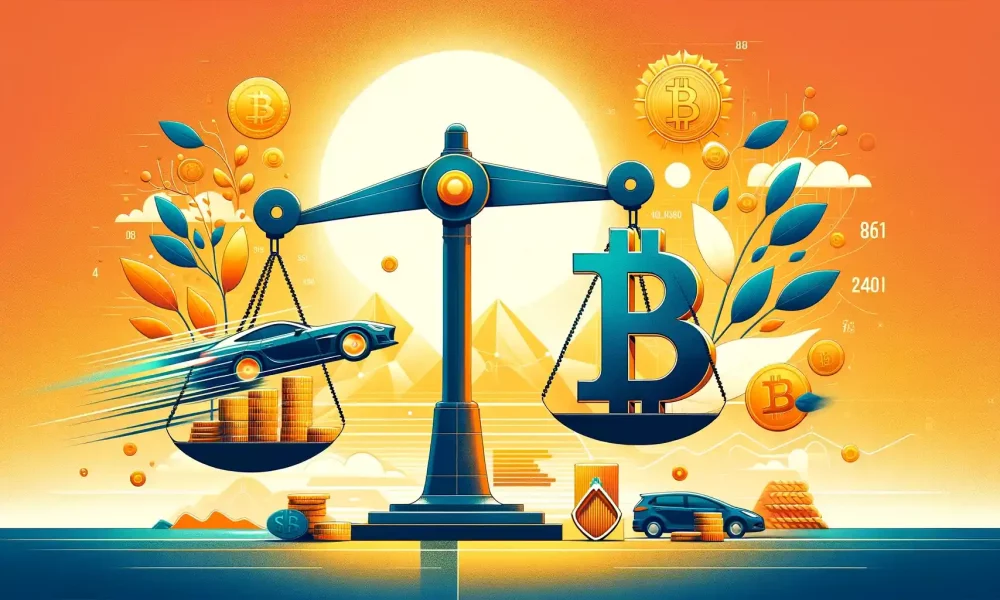- Solana validator fees are higher than those incurred on the Bitcoin network.
- As SOL prices soared, interest in SOL staking also increased.
Solana (SOL) has surpassed various altcoins in terms of activity and transactions taking place on its network. But the network is starting to see growth in other areas as well. Data shows that Solana could rival Bitcoin (BTC) in terms of fees collected on the network.
high fees
According to AMBCrypto’s analysis of Artemis data, Solana was outperforming Bitcoin in terms of fees accrued to validators. The high fees earned by Solana validators indicate a surge in network activity, suggesting increased adoption and usage of the platform.
The enhanced activity not only demonstrates Solana’s scalability, but also highlights Solana’s efficiency in transaction processing and smart contract execution.
Additionally, the ability to generate higher fees increases Solana’s attractiveness to validators, encouraging their participation and strengthening network security and decentralization.
Solana continues to outpace Bitcoin in terms of fee generation, strengthening its competitiveness and highlighting its potential as a leading blockchain platform, attracting more developers, projects, and users to its ecosystem.

Source: Artemis
While higher fees could mean increased network activity, some investors worry that Solana’s rapid growth could be unsustainable or potentially represent speculative behavior.
There are also concerns about the scalability of the Solana network and whether it can handle continued growth without technical issues or bottlenecks.
Solana’s history of downtime doesn’t help the sentiment around the network, either.
interest in staking
In addition to validator fees, interest in Solana staking has also surged. Analysis of Dune Analytics data shows a surge in Total Value Locked (TVL) staked through Liquid Stake Tokens (LST).
Jito was the most popular choice for most stakers as it accounted for 46.1% of the total market share.
Increasing participation in staking will tie up more SOL tokens as collateral, increasing the security and decentralization of the network. This increased security helps protect the integrity of transactions and increases trust in the Solana Protocol.
Staking SOL tokens also allows holders to receive rewards.
How much is 1,10,100 SOL worth today?
This will help foster a long-term investment culture and reduce circulating supply, potentially leading to more stable token prices over time.


Source: @ilemi Dune analysis
In addition to SOL staking, interest has also appeared in SOL tokens. In the last 24 hours, SOL price has surged 10.46%.


Source: Santiment

